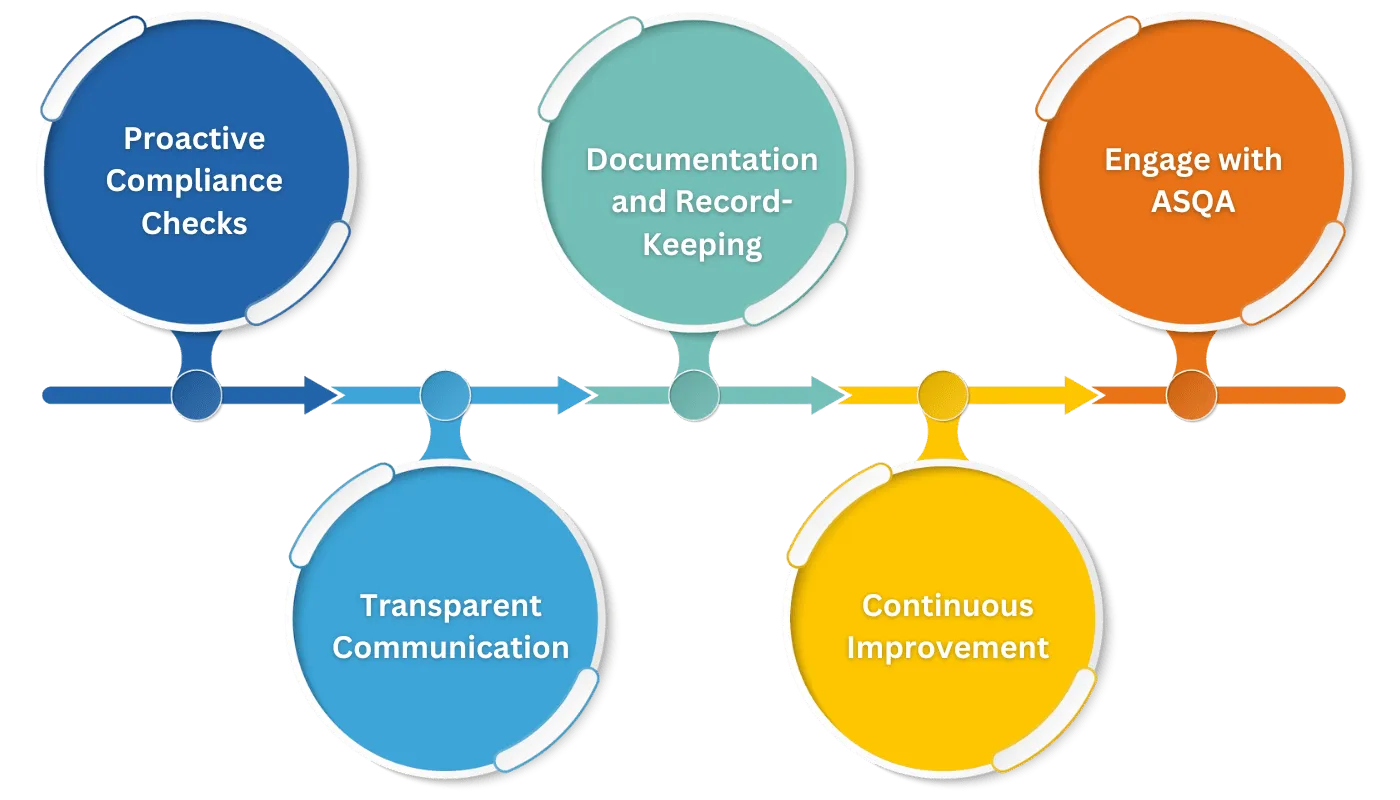Home » How ASQA Uses VET Tip-offs and Complaints from Various Stakeholders

Hello everyone,
I’m Ben Thakkar, the CEO of VET Resources, and today I want to shed light on how the Australian Skills Quality Authority (ASQA) uses information from VET ASQA tip-offs, and complaints from Home Affairs, students, trainers, and other stakeholders to ensure the quality and compliance of Registered Training Organisations (RTOs).

ASQA Complaints rely heavily on ASQA tip offs line from various sources to identify non-compliant RTOs. These tip-offs can come from students, trainers, industry representatives, or even anonymous sources. When ASQA receives a tip-off, they assess the information provided and determine if it warrants further investigation. This proactive approach helps ASQA identify and address issues before they affect a larger number of students.
You can report a tip-off through ASQA’s official Tip-off Webform.
The Department of Home Affairs often collaborates with ASQA complaints to address issues related to international students. Complaints from Home Affairs typically involve concerns about student visa conditions, fraudulent practices, or issues with course delivery. ASQA complaints uses this information to conduct targeted audits and ensure that RTOs are complying with both educational and immigration regulations.
Students are encouraged to report any concerns they have about their training experience. Common issues include poor quality training, inadequate resources, or misleading information about courses. ASQA takes student complaints seriously and uses them as a basis for audits. By addressing these complaints, ASQA complaints helps maintain high standards across the VET sector and ensures that students receive the quality education they were promised.
Trainers and other stakeholders within the VET sector are also important sources of information for ASQA. Complaints from these groups can highlight issues such as non-compliance with training packages, lack of industry engagement, or problems with assessment practices. ASQA complaints uses this feedback to perform audits and ensure that RTOs are delivering training that meets industry standards and compliance requirements.

Q1: How does ASQA handle anonymous tip-offs?
Q2: What happens after I submit a complaint?
Q3: Can students face repercussions for submitting complaints?
Q4: How effective are ASQA tip off line in identifying non-compliant RTOs?
Q5: What should I include in my complaint to ASQA?
By understanding how ASQA uses tip-offs and complaints from various stakeholders, RTOs can better prepare for audits and maintain compliance. For more information on reporting a tip-off, visit ASQA’s Tip-off Webform.
Disclaimer:
The information presented on the VET Resources blog is for general guidance only. While we strive for accuracy, we cannot guarantee the completeness or timeliness of the information. VET Resources is not responsible for any errors or omissions, or for the results obtained from the use of this information. Always consult a professional for advice tailored to your circumstances.
Ben Thakkar is a Compliance, Training, and Business specialist in the education industry. He has held senior management roles, including General Manager, with leading Registered Training Organisations (RTOs) and Universities. With over 15 years of experience, Ben brings extensive expertise across audits, funding contracts, VET Student Loans, CRICOS, and the Standards for RTOs 2025.
Ben Thakkar Linkedin
National Australia’s Day Sale is live! 70% OFF!, Valid Till 31st Jan!
By submitting this form, you agree to the VET Resources Privacy Policy.